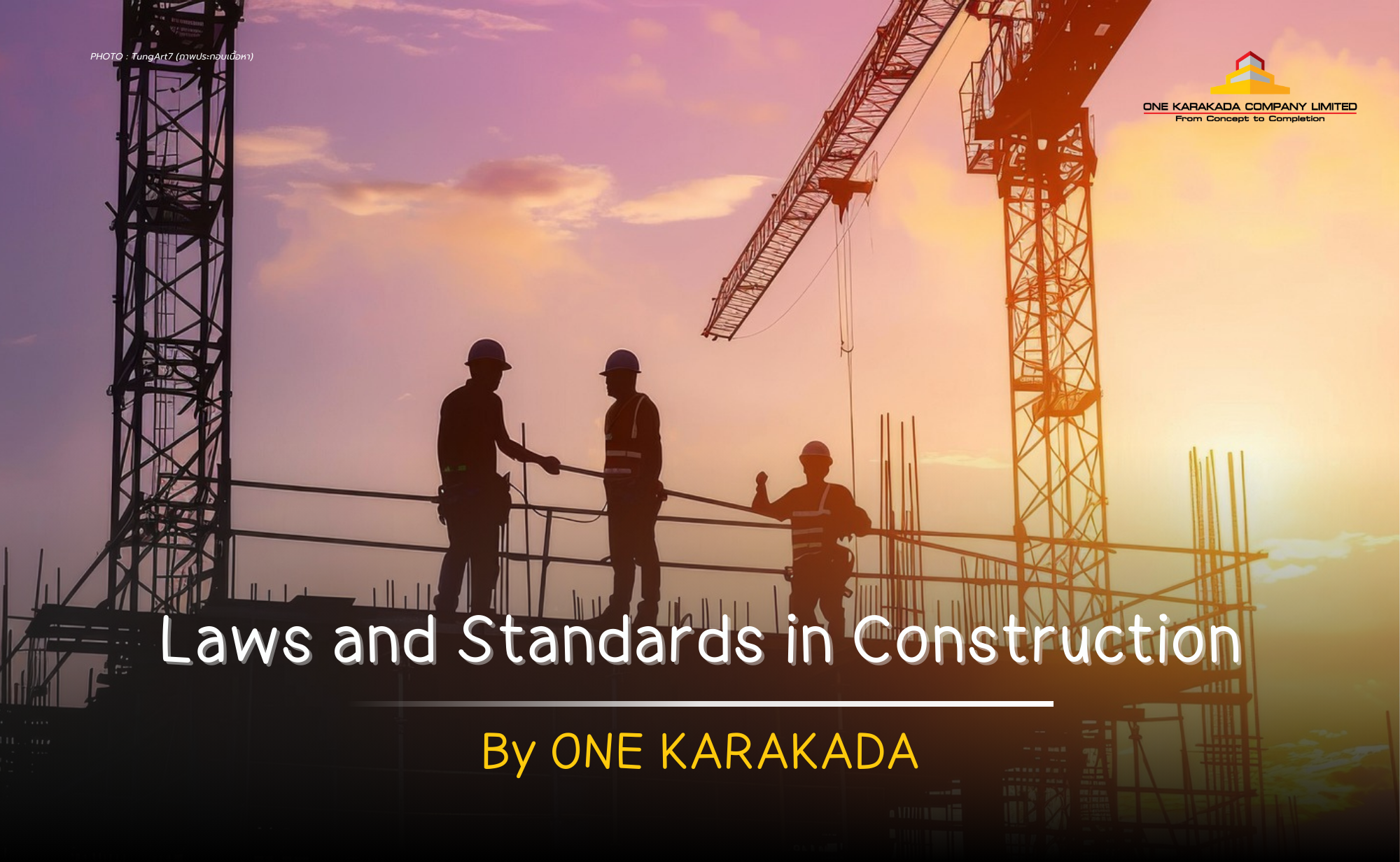In the construction industry, beyond the competition for service quality, another crucial factor that builds client confidence is adherence to laws and standards set by governmental authorities at every stage of the construction process.
Laws and standards related to construction are essential for all construction business operators to ensure projects are safe, of high quality, and compliant with legal requirements.
Construction Laws
Construction laws in Thailand consist of various acts that set standards and requirements to regulate and oversee construction operations accurately and safely. Here are some key laws related to construction in Thailand:
Building Control Act B.E. 2522 (1979)
- This is the primary law used to regulate building construction in Thailand. It mandates that building construction must be authorized by local officials and specifies safety, stability, and hygiene requirements in building construction. It also sets standards for design, materials, and construction methods.
Town Planning Act B.E. 2562 (2019)
- This law outlines the guidelines for land use and urban development, setting regulations for comprehensive town plans, specific town plans, and other urban plans. It specifies requirements for land use, infrastructure development, and environmental management in urban areas.
Labor Protection Act B.E. 2541 (1998)
- This law defines the rights and duties of employers and employees in the construction industry, specifying requirements for wages, working hours, rest periods, and various benefits. It sets safety measures for working conditions and accident prevention.
Occupational Safety, Health, and Environment Act B.E. 2554 (2011)
- This law sets safety measures for work on construction sites, specifying requirements for using safety equipment such as helmets and safety shoes. It mandates safety training for employees.
Enhancement and Conservation of National Environmental Quality Act B.E. 2535 (1992)
- This law regulates the control and prevention of pollution from construction activities, specifying requirements for waste and chemical management on construction sites. It sets measures to protect the environment and maintain air and water quality.
Engineering Profession Act B.E. 2542 (1999)
- This law sets standards and regulations for the practice of engineering, specifying requirements for licensing and the inspection of engineers’ work. It outlines penalties for violating engineering practice regulations.
Standards Related to Construction
Building Codes
- These standards govern the design and construction of buildings, such as structural design standards, electrical standards, and sanitation standards.
Construction Material Standards
- These standards specify requirements for various materials, such as concrete standards, steel standards, and wood standards.
Construction and Installation Standards
- These standards govern the execution of construction work and the installation of various systems in buildings, such as electrical systems, plumbing systems, and air conditioning systems.
Adhering to these laws and standards not only ensures smooth construction operations but also guarantees that the built structures are safe and compliant with legal and environmental requirements.
…
ONE KARAKADA Co., Ltd. is a design and build construction company in Thailand that constructs GMP-standard factories. We also build general factories and warehouses, including prefabricated structures, all adhering to international quality standards.
Our team of engineering and architectural experts supervises every construction process from start to finish. As a leading design and build construction company in Thailand, we ensure that every project meets the highest standards.

